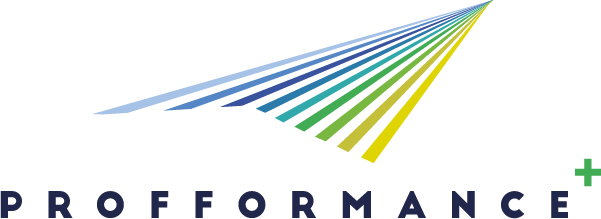OphthalmologyCamp
Summer School of Practical Ophthalmology
- 09 – Health and welfare
1. Student-centered course design
The Summer School of Practical Ophthalmology is an annual three-day student-led course hosted by Charles University in Prague, Czech Republic. Designed for final-year medical students aspiring to specialize in Ophthalmology, it combines hands-on workshops, expert lectures, and soft-skills training while fostering professional connections among a diverse European student body. In 2024, the event welcomed 19 students from 12 countries, with teaching provided by international and local experts through a combination of online and on-site sessions. Held at the Department of Ophthalmology, 3rd Faculty of Medicine, the program ran from July 12th to 14th. Participants engaged in practical workshops covering essential ophthalmic procedures such as foreign body removal, corneal suturing, cataract surgery, intravitreal eye surgery using VR models, YAG laser application, intraocular pressure monitoring, and more. These workshops were delivered by senior international physicians, supported by local junior doctors and trained students. The lectures, delivered by researchers from institutions including Charles University, the University of Oxford, and Harvard University, explored key contemporary topics such as artificial intelligence in Ophthalmology, genetics, telemedicine, and scientific communication. The program’s innovative design, with its focus on practical skills, digital mobility, and international collaboration, provides a unique springboard for students pursuing careers in Ophthalmology. Aside from providing core ophthalmic concepts to its attendees, the course also served as a meeting hub for like-minded peers who were able to partake in a meaningful cultural exchange and form professional and personal bonds for years to come, with Prague’s beautiful architecture and cultural significance serving as a backdrop. The event thus created the beginning of a vibrant student community, which we aim to further foster within the framework of our Summer School and other initiatives. The outcomes of the course included training a group of 19 students in the basic practical skills necessary for clinical practice, equipping them with core concepts of modern ophthalmic science, and providing them with an open and international space where they could freely express their interests and receive mentorship from an international faculty of both junior and senior ophthalmologists.
Methodology
Tools, equipment, technology used
Outcomes and outputs, main results
Lessons learnt
Adaptability and sustainability of the best practice (for other institutions)
Promotion of best practice
Scope and impact
- Course/department level
- Faculty level
- Institutional level
- Cross-institutional level
- National level
- EU/EHEA/International level
6.1 Digitalization
- Outstanding, innovative, excellent practices of online / blended / hybrid learning
- Innovative, novel methodology in using digital tools/devices in teaching
- Digital skills development and assessment both general and profession-related, embedded in course design, in teaching and assessment
- Novel digital solutions (tools, frameworks, devices, tasks to enhance efficiency and motivation)
- Artificial intelligence and learning analytics in education and training
Reasoning: Our good practice has made use of digital technologies in content delivery, utilising them to offer unique expert lectures from US-based researchers without the environmental impact of having them fly to Prague. It has also taught its participants using digital tools throughout the curriculum, using both digital diagnostic methods and PC-based practical workshops on AI. Students were able to interact with their peers within our digital social group throughout the event and could give feedback.
6.2 Internationalization
- Outstanding practices of international online collaborative learning
- Developing students' multicultural awareness
- Innovative practices of blended mobility
- Courses implemented in international cooperation (projects, co-teaching, virtual/blended mobility, etc.)
Reasoning: The course integrated international and global issues such as AI racial and ethnic bias in ophthalmic data, rural medicine, and EU-specific pathways for residencies and grants. Lecturers from diverse cultural and professional backgrounds provided a universally applicable curriculum, ensuring relevance across countries. Collaboration and networking were fostered through intercultural student groups working together during workshops and a social program that connected students, physicians, and industry stakeholders. Teaching strategies adapted to the diverse educational and cultural backgrounds of participants through inclusive methods, tailored resources, and patient-centric approaches applicable to all demographics. The course developed global competence by creating opportunities for knowledge exchange and cultural understanding, preparing students to navigate Ophthalmology. Students created a thriving community which meets during large scale conferences such as ARVO/EURETINA.
6.3 Inclusion and diversity, universal design
- Senzitivizing students to consider special needs when practicing their profession
- Course includes hints on how the services/products of the profession could be universally designed/inclusive
Reasoning: Our course was designed with an inclusive framework in mind. Ophthalmology was taught to a diverse student body, with their individual teaching needs respected. Teachers took extra care to provide students with the time necessary for them to excel at the task. Dietary preferences were also respected. Students were provided visual learning materials beforehand and lecturers provided students with ample time to phrase their questions. Feedback was flexible, non-compulsory and anonymous.
6.4 Sustainability
- Sustainability goals are addressed in the course(s)
Reasoning: Within our course, attendees were given an overview of the course structure regarding sustainability in teaching. We included 50% of our lectures in a digital format, with the lecturers' environmental footprint limited to nearly zero. We also talked about the plastic waste generated in Ophthalmology during anti-VEGF injection application with references to other procedures. The modular nature of the event showcased the possibility of holding similar courses with minimal environmental impact.
3.3 Public contact datas
| Name | Email address | Website |
|---|---|---|
| Martin Horák | ophthalmologycamp@gmail.com | https://www.ophthalmology.camp |

